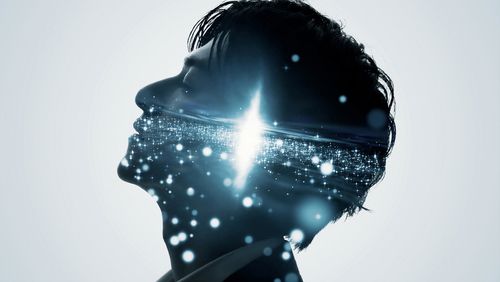 The rapid evolution of artificial intelligence (AI) and technology has not left any sphere of human activity untouched, including the sacred realms of religion and spirituality. Have you ever wondered how these technological strides might be shaping the future of your religious practices?
The rapid evolution of artificial intelligence (AI) and technology has not left any sphere of human activity untouched, including the sacred realms of religion and spirituality. Have you ever wondered how these technological strides might be shaping the future of your religious practices?
Virtual Realities are Transforming The Way We Worship
Think back to just a few years ago. Attending your place of worship was perhaps a weekly ritual, a part of your routine.
Since 2020, online streaming of religious services has become commonplace, transcending geographical barriers and bringing communities together in ways that were perhaps unimaginable a few decades ago. Not surprisingly, the COVID-19 pandemic accelerated this shift, proving that large-scale religious gatherings could be conducted virtually without losing their essence.
In some cases, AI pushes the boundaries even further when it comes to worship. In Japan, a Buddhist robot priest performs rites and chants sutras for patrions. Similarly, the “SanTO” robot in Italy can recite prayers, biblical verses, and even provide some spoken comfort to people seeking support.
While unprecedented and somewhat shocking, these robotic aids are not intended to replace human clerics. Rather, their role is to supplement the religious experience and make it more accessible to everyone, including the elderly and those unable to attend traditional services.
Ethical Dilemmas: AI as a Moral Compass?
As AI becomes a more prominent part of our lives, it brings up some hefty ethical questions. Without human experience or divine insight, can AI truly make moral decisions? Some faith-based organizations are now exploring AI's potential to address ethical dilemmas by programming algorithms based on religious teachings, rather than just internet-crowdsourced information. For instance, the concept of “AI fatwas” in Islam or automated pastoral advice in Christianity showcases an attempt to blend doctrinal guidance with machine efficiency.
But let's be honest—this reliance on AI for ethical guidance also requires us to confront the biases that these systems may carry. How can we ensure that these AI systems remain true to the ethical standards and moral philosophies of our faiths?
Theological Implications: Rethinking Divine Interactions
AI is also sparking new theological debates that challenge traditional views on divinity, free will, and even the human soul. As machines start showing capabilities like learning and problem-solving, it raises big questions: What is the nature of the soul? Can AI ever connect with the divine as humans do?
Some theologians are cautious, viewing AI as incapable of replicating the profound human capacity for divine experiences and moral judgment. Others, however, see AI as a valuable tool that could help us understand divine laws in new ways.
Could AI help us unlock patterns and meanings in sacred texts that were previously overlooked?
Navigating the Future with Faith and Foresight
Integrating AI and technology into religious practices is a delicate balance. How do we embrace the benefits of these advancements while holding onto the core spiritual and moral values of our religions? How can we use technology not as a substitute for human connection but as an enhancement to our religious experiences?
Faith communities must navigate these waters with both faith and foresight, finding the balance between worldly progress and the way technology can enrich the human understanding of the divine.



